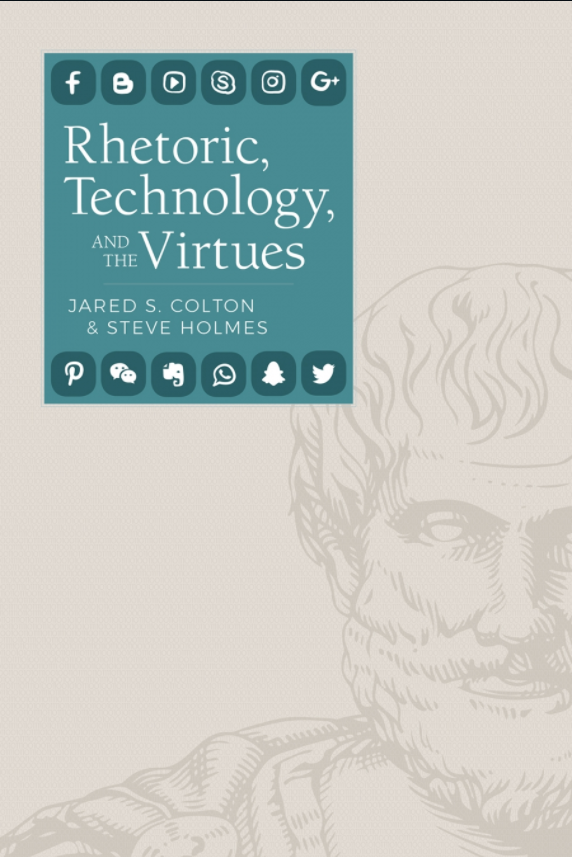Rhetoric, Technology, and the Virtues by Jared S. Colton and Steve Holmes

Abstract
Jared Colton and Steve Holmes's (2018) book Rhetoric, Technology, and the Virtues seeks to update the neglected Aristotelian paradigm of virtue ethics in order to sketch a guide to rhetorical and ethical action in modern, digitally mediated contexts. In the Introduction, the authors grapple with the desuetude of virtue ethics in rhetorical studies before making the case for its contemporary applicability. Chapter Two—Toward a Virtue Ethics in Digital Rhetoric fleshes out the historical and Aristotelian origins of the hexeis and addresses postmodernism's critique of universal rationality. Chapter Three—The Practice of Equality as a Virtue employs a Rancièrian framework in order to examine closed captioning practices on YouTube as a way to inform the hexis of justice. Chapter Four—Care in Remix and Digital Sampling centers on Aristotle's notion of empathy via reciprocity in order to argue for the use of a virtue of care in rhetorical remixing practices. Chapter Five—Generosity in Social Media Technology focuses on examples of slacktivism to complicate understandings of ethical online engagement. Chapter Six—A Virtue of Patience in Environmental Networks presents the import of the virtue of patience in social media shaming. Chapter Seven—Future Applications of Hexeis in Networked Societies is devoted to future applications of Aristotle's hexeis and virtue ethics. Through enmeshing the classical conception of virtue ethics with postmodern theories and theorists, this book provides a timely and new area of research for digital rhetors engaged in the pursuit of ethical good within networked spaces.